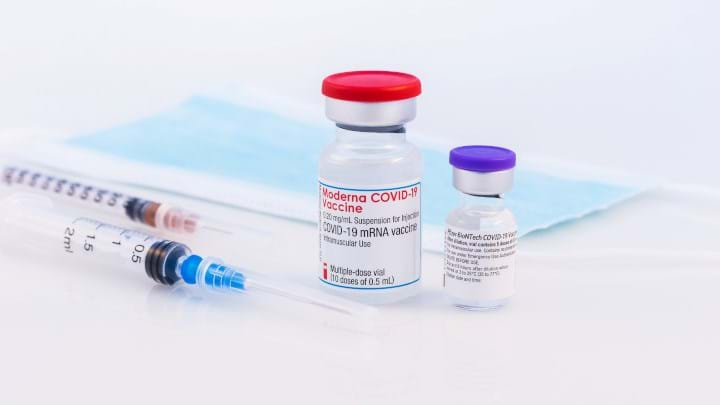Moderna secures partial victory in Covid vaccine dispute with Pfizer and BioNTech

MODERNA has won part of its UK patent case against Pfizer and its German partner BioNTech over the technology that helped develop the Covid vaccines.
The High Court in London ruled in favour of the Moderna’s EP949 patent that concerns the mRNA technology used in the development of the vaccine Spikevax.
Moderna claims that it pioneered and patented the technology in 2010, well before the Covid pandemic, and that Pfizer and BioNTech copied it to develop its Comirnaty vaccine.
The win comes hot of the heels of a similar victory with the European Patent Office, which also upheld EP949.
In the UK case, the High Court ruled that as the patent was found to be valid, Pfizer and BioNTech have infringed it.
Moderna said it will not stop the continued sale of Comirnaty but does expect financial compensation for the use of the mRNA technology.
The other patent ruled 'invalid'
The High Court did not uphold Moderna’s EP565 patent, which is similar to EP949 in that it relates to the technology used for mRNA vaccines but differs in application.
While EP949 relates just to the technology used in modified mRNA, EP565 relates to the use of mRNA vaccines to treat and prevent beta coronavirus and other respiratory diseases. Covid was caused by the spread of a type of beta coronavirus called SARS-CoV-2.
The UK’s Medicines & Healthcare products Regulatory Agency approved the supply of Comirnaty in December 2020, with Spikevax approved in January 2021.
Moderna patented EP565 in 2016 and claims that Pfizer and BioNTech also copied its method of developing an mRNA vaccine for beta coronavirus-related diseases.
In the dispute, however, Pfizer and BioNTech argued that the research into the use of mRNA vaccines for application into beta coronavirus treatment was not novel and that the firms’ expert team would have had knowledge on what mRNA technology would be best suited for developing its vaccine.
Mr Justice Meade said: “The skilled team would include persons with the knowledge and skill to select among the various pathogens which were the most appropriate targets.”
He added: “They would not know or need to know every obscure pathogen, but they would know the main ones of interest, and especially viral pathogens.”
All parties looking to appeal
All parties have expressed their disagreement over the results of the case, with Pfizer and BioNTech expected to appeal on the ruling of EP949, and Moderna considering appealing for EP565, reports the Financial Times.
The international legal battle is far from over, with both sides pursuing claims over the validity of the patents in Germany, the Netherlands, Belgium, and the US.
Recent Editions
Catch up on the latest news, views and jobs from The Chemical Engineer. Below are the four latest issues. View a wider selection of the archive from within the Magazine section of this site.




